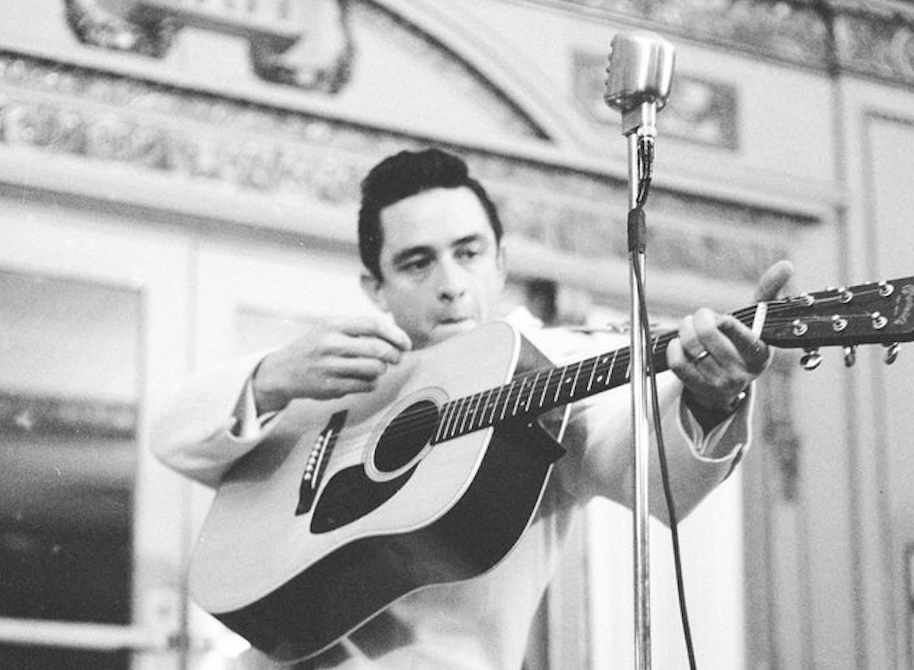What Genre Was Johnny Cash?
When we think of Johnny Cash, the iconic figure in black, with his deep, resonant voice and his brooding presence, a multitude of musical images flood our minds. He's often referred to as a country music legend, and rightly so. Yet, his music transcended the boundaries of any single genre. Johnny Cash was a chameleon, effortlessly blending elements of country, rock and roll, folk, gospel, and even elements of blues and rockabilly into his distinctive sound. In this exploration, we delve into the complexities of Cash's music, attempting to answer the question: What genre was Johnny Cash?

What Genre Was Johnny Cash?
Johnny Cash was a Country Music Artist, he was also influenced by early Rock and Roll.
Born in 1932 in Kingsland, Arkansas, Cash's upbringing in the rural South deeply influenced his musical style. His early exposure to traditional folk songs, gospel hymns, and the sounds of country music laid the foundation for his future career. Cash's debut at Sun Records in the mid-1950s marked the beginning of his rise to stardom, and it was during this time that he embraced the country music scene. Hits like "Folsom Prison Blues" and "I Walk the Line" established him as a prominent figure in the country music landscape, earning him a place in the Country Music Hall of Fame.
While Cash was undeniably a country music icon, his rebellious spirit and raw energy also aligned with the emerging rock and roll movement of the 1950s. His fusion of country twang with rockabilly rhythms created a sound that was uniquely his own. Tracks like "Get Rhythm" and "Rock Island Line" showcased Cash's ability to bridge the gap between country and rock, earning him fans from both sides of the musical spectrum. His collaborations with rock legends like Elvis Presley and Jerry Lee Lewis further cemented his status as a crossover artist.
In the 1960s, Cash's music took on a more introspective and socially conscious tone, reflecting the turbulent times in which he lived. Inspired by the folk revival movement, he began writing and performing songs that addressed issues of poverty, injustice, and the human condition. Tracks like "The Ballad of Ira Hayes" and "Man in Black" showcased Cash's knack for storytelling and his commitment to speaking truth to power. His appearances on popular television shows like "The Johnny Cash Show" helped introduce his music to a broader audience, solidifying his reputation as a folk troubadour.
Despite his struggles with personal demons and addiction, Cash never lost his faith or his connection to gospel music. Throughout his career, he recorded numerous gospel albums and incorporated spiritual themes into many of his songs. Tracks like "Were You There (When They Crucified My Lord)" and "Peace in the Valley" showcased Cash's deep reverence for gospel music and his belief in the redemptive power of faith. His performances at prisons and other unlikely venues brought the message of hope and salvation to those who needed it most.
If you are interested in learning music check out our Music Lessons in Tempe.
In the decades since his passing in 2003, Johnny Cash's influence on popular music has only grown stronger. His songs continue to resonate with audiences of all ages, and his impact can be felt across a wide range of musical genres. From country to rock to folk to gospel, Cash defied categorization, blurring the lines between genres and challenging the conventions of the music industry. In the end, perhaps it's best to think of Johnny Cash not as a country singer or a rock and roll rebel or a folk troubadour, but simply as an artist—one whose music transcends genre and speaks to the universal truths of the human experience.
Even years after his passing, Johnny Cash's influence remains palpable in contemporary music. Artists spanning various genres cite him as a primary source of inspiration, and his songs continue to be covered and reimagined by musicians from all walks of life. His timeless classics like "Ring of Fire" and "I Walk the Line" are still staples on radio stations and playlists worldwide, proving the enduring appeal of his music.
Moreover, Cash's persona transcended music; he became a cultural icon, embodying the rugged individualism and rebellious spirit of the American frontier. His image, clad in black, with his gravelly voice and brooding demeanor, left an indelible mark on popular culture. From his memorable performances at prisons to his cameo appearances in films and television shows, Cash's presence loomed large, captivating audiences with his authenticity and charisma.
Beyond his musical contributions, Cash's philanthropic endeavors and advocacy work further solidified his status as a beloved figure. He championed causes ranging from prison reform to Native American rights, using his platform to shine a light on social issues often overlooked by mainstream society. His unwavering commitment to justice and equality endeared him to fans around the world, earning him the title of "The Man in Black" not just for his wardrobe choices but for his unwavering stance against injustice.
In conclusion, Johnny Cash's impact on music and culture cannot be overstated. He defied genre boundaries, challenged societal norms, and touched the hearts of millions with his poignant lyrics and soul-stirring performances. Whether he was singing about love and loss, redemption and salvation, or the struggles of the downtrodden, Cash's music spoke to the universal human experience, resonating across generations and leaving an indelible mark on the fabric of American music. As we continue to celebrate his legacy, let us remember Johnny Cash not only as a country music legend but as a true icon whose influence transcends time and genre.
If you like this check out our article: What Genre Was Prince?
